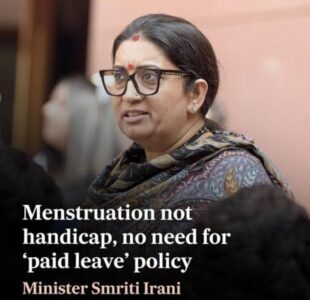What is it like to inherit trauma?
What It’s Like to Inherit Trauma
My maternal inheritance is vast: we share the same laugh, same love for savory foods over sweet ones, same guilty enjoyment from cheesy romantic dramas. We’re also alike in the ways I secretly wish we weren’t. My mother and I navigate the world with the cultivated quiet of small mammals who’ve adapted to exist against all odds. “Natural people-pleaser.” “Overachiever.” “Conscientious.” I’ve gone through the motions of life eroding my own boundaries and desires for the comfort of others. This is how I’ll make it to another day. This is how the bough breaks.
My grandmother, mother and aunt — the women — were the ones around to pick up the day-to-day pieces. We relied on them for everything and took it all for granted. They slipped into this hierarchy they had no say in building with the same tired smoothness they used to slip through the front door after a long workday (that often exceeded the men’s workdays).
The women knew the means to survival but not living. Perhaps seeing their conditioned acceptance to the blood-thick misogyny of everything in that house determined the philosophy by which I shaped myself: you are the sum of what you can do for others.
What Does Intergenerational Trauma Look Like?
In popular culture and media, we see an abundance of content related to “generational curses” that catalyze the protagonist’s journey. We’ve come to view them in the context of a set narrative rather than lived experience. The hero comes into their blood-ordained power for the first time. They grapple with it. They grow into it. They become the stuff of legends, and we can all applaud from the other side of the screen, fulfilled by the predictable satisfaction evoked by a happy ending. Intergenerational trauma is considerably more nuanced — there is no clear hero or villain, victor or victim.
I love my mother. That’s the one thing I can say with certainty. Most days, however, I don’t know if I like her — and I’m sure she’d say the same about me. This is because I’m acutely aware of the fact that many, if not all, of my mental health struggles can easily be traced back to her: my anxiety, terrible body image and depression.
Currently, I identify as a socially anxious introvert with an extraordinarily low battery for interaction. But the truth is, I was a relatively happy child. My home life was challenging, but I was insulated from much of the direct harm through the efforts of my mother and grandmother, for which I am forever grateful. In elementary school, I was a confident and outgoing extrovert who never had any doubts about her ability to make and maintain friendships.
However, things changed when my parents divorced. My mother and I suffered. Our relationship was rocky for all of my middle school and half of my high school years. She was always working to support the two of us. I lingered in solitude for most of my adolescence and felt abandoned because of it. Being an immigrant, a single mother, and a woman of color in a racialized and fractured society is obviously not an easy task to take on. My mother was stressed, but she wouldn’t communicate. Our interactions grew strained; I would feel anxious about her coming home and picking me apart. Among this wreckage, no venerated champion emerged — only mother and daughter standing side-by-side


Leave A Reply